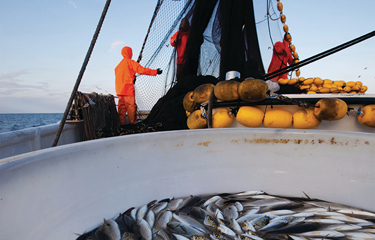US government allocates funds to fight IUU as part of trade agreement

The U.S. government has allocated USD 8 million (EUR 7.3 million) to fight IUU fishing and bolster the country's Seafood Import Monitoring Program (SIMP) as part of the US-Mexico-Canada trade agreement (USMCA) that was approved in January.
As part of the agreement, funding will go to the National Oceanic and Atmospheric Administration (NOAA) to help it cooperate with the Mexican government on fighting illegal fishing through 2023.
The USMCA legislation also includes directions for the U.S. Secretary of Commerce to implement the Port State Measures Agreement Act, which aims to prevent illegally caught fish from reaching international markets by blocking it from ever getting through ports.
The funding allocation will help increase transparency and traceability for seafood – and that in turn will help fight IUU fishing by blocking illicit products from making their way into the U.S. The SIMP requires U.S. seafood importers of 13 key, high-risk species to provide documentation from the point of capture to the point of entry.
The funding and recommendations match recommendations from the Stimson Center, a nonpartisan policy research center. The additional funding is needed to prevent falsification of records of fish entering the U.S. and will help verify the authenticity of documents through the seafood supply chain, according to Sally Yozell, director of the Stimson Center’s Environmental Security Program.
“With these new funds, it enables NOAA to do an assessment of the SIMP program and determine specific areas for improvements so that it can move to all species in the near-future,” Yozell told SeafoodSource.
Both fishermen and brokers might find it easier to track all species that are imported – not just the select species monitored under SIMP, Yozell said.
"As fish moved along the supply chain, multiple catches are often integrated into one buy, obscuring the origins and fish data further," Yozell said. "As a result, many suggested documenting all fish would be easier for compliance."
In order to prepare for the implementation of the treaty and a potentially expanded SIMP, seafood companies at all stages of the supply chain should develop electronic data collection and move away from paper record keeping, Yozell added.
"Gaps, inaccuracies, and falsifications occur before the records arrive in the U.S. and throughout the seafood supply chain," Yozell said. "As the fish moves further from the dock, it is more likely to be falsified."
Currently, SIMP is funded by about USD 1.5 million (EUR 1.4 million) and has only one full-time staff person, according to Yozell, though other NOAA Fisheries staff are engaged in SIMP among their other duties. The majority of funds go to computer analysis and computer risk-flagging.
The new funding "will go a long way at helping NOAA improve the implementation of SIMP," Yozell said. The funds could be used to hire additional staff, for starters, and help improve confidence in audit compliance.
Additionally, the U.S. government should work to mandate automatic identification system (AIS) and vessel monitoring system (VMS) location-tracking on all vessels flagged to the U.S., Yozell said – while supporting efforts to do the same internationally. The U.S. should also support the World Trade Organization’s efforts to end harmful fishing subsidies, she added.
Photo courtesy of NOAA Fisheries






Share